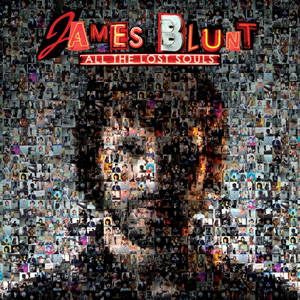 A problem I’ve been encountering with Drop 22 is that I review albums that not a lot of people have heard. People most often say, “good review, but I haven’t heard (blank)’s music.” Well, if you think I was being obscure before, just read the rest of this review.
A problem I’ve been encountering with Drop 22 is that I review albums that not a lot of people have heard. People most often say, “good review, but I haven’t heard (blank)’s music.” Well, if you think I was being obscure before, just read the rest of this review.Neutral Milk Hotel’s In the Aeroplane Over the Sea is considered by the uber-music-knowledgeable to be one of the best indie non-mainstream albums ever. I had heard their name whispered when I got into The Decemberists and Arcade Fire, and had been meaning to check them out for a long time. I’m glad I did, because what was at first a turn-off slowly became something magical, interesting, and really kind of beautiful.
In the Aeroplane Over the Sea isn’t like any other album, and its creator, Jeff Magnum, seems to eschew any musical traditions and norms. Even its packaging is pretty non-standard, featuring no words on the cover or back sleeve, a fold-out CD booklet, and inaccurate lyrics with no indication as to where one song ends and the next begins. Neutral Milk Hotel is part of the Elephant 6 music group, which, for lack of a better term, can only be described as a musical collective. It consists of a bunch of bands, many members of which are also members of other bands in the Elephant 6 family. It’s not a record label, and not all the bands record in the same studio building or under the same producer or group of producers. All the bands are firmly entrenched in the “indie-folk-blues-rock” category. That genre is very hard to describe, but you know it when you hear it. Neutral Milk Hotel started, as many Elephant 6 bands did, as a solo project. Gradually, other musicians came on board, and it was a very fluid, chaotic thing. It wasn’t a matter of “we are going to start a band,” as many other bands are. For In the Aeroplane Over the Sea, the band’s lineup was as solid as it was going to get, but it still featured a few songs that were just Jeff and an acoustic guitar.
So what’s so great about this album? Few people have actually heard it, which isn’t surprising, since it was very poorly marketed. The recording of it was even pretty low-budget, and I get the feeling that it was really just a matter of Jeff and the band playing stuff, and someone happened to turn on microphones and get it on tape. In truth, I don’t know what makes this a fantastic album, but it is. Something about it just inexplicably drew me in. Once it did that the first time, I didn’t even like it that much. But the same thing that drew me in kept me coming back. It is excellent background music while you’re doing something else (like writing a review, heh), and also stands up to close scrutiny, as it presents many interesting things on repeated listens. It doesn’t use normal instrumentation, doesn’t stick to the verse-chorus-verse model at all, and challenges what you think music is supposed to sound like and what it’s supposed to do. But in a weirdo off-kilter way, it makes its own sort of sense. If you just let it spin in its own non-circular way, I think you’ll find it’s a beautiful, heart-rending trip that you weren’t expecting.
The “Carrot Flowers” suite, which takes up the first two tracks, is wild and unpredictable, switching from mood to mood in a schizophrenic way. Then comes the title track, the most accessible and pop-oriented song on here, which isn’t saying much. It’s also one of the prettiest songs to be released in the 90s by any artist. “
There is not a single song on this album that I now consider to be sub-par. Every single one flows into the next with such grace and aplomb, and there are very few errors. Granted, the chaotic and formless approach of the album makes it an uncomfortable experience at first. Like I said, it doesn’t sound like you think an album of music should sound, and doesn’t behave in the normal way. But if you just give it a chance, it will reward you very well.
I’m not even gonna try this. The songs bleed together so much that it’s a little meaningless to pick out individual ones. It was hard enough to describe them.





